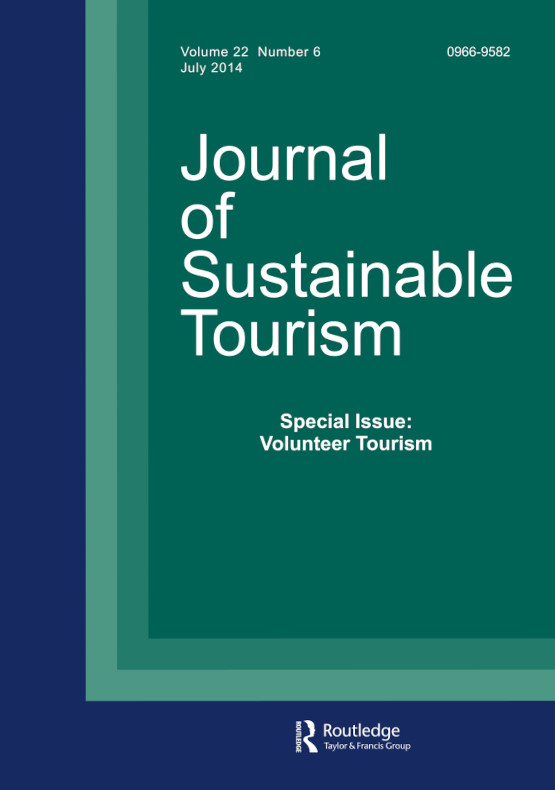Understanding tourists’ eco-paralysis, environmental concern, and pro-environmental behavior: an explanatory sequential mixed methods study
IF 7.8
2区 管理学
Q2 GREEN & SUSTAINABLE SCIENCE & TECHNOLOGY
引用次数: 0
Abstract
This paper argues that developing practical interventions of responsible behavior requires a deeper understanding of different segments of tourists with different environmental and psychological dispositions. Dwelling on two socio-psychological theories of cognitive dissonance and the focus theory of normative conduct, 724 Chinese tourists are surveyed and segmented. Three segments namely eco-distressed, eco-pragmatic, and eco-calm are identified revealing different dispositions of eco-paralysis, environmental concern, and pro-environmental behaviors. Complemented by 37 interviews, we found that eco-paralysis does not necessarily mean inaction but helplessness and perceptions of feeling “small” in the face of “giant” climate change while overcoming numbness with small actions. This study suggests that the eco-paralysis of Chinese tourists is manifested at the cognitive-emotional level rather than at the behavioral level. Our findings contribute to a deeper understanding of the varying degrees of cognitive dissonance among different tourists with each group displaying unique environmental concerns and behaviors. It, theoretically, highlights how social and injunctive norms such as government environmental advocacy and traditional virtues [“qinjian jieyue”] stimulate progressive actions despite feelings of powerlessness. Thus, it questions the prevalent interpretation in environmental psychological research that helplessness means inaction by revealing that tourists could still be environmentally proactive despite cognitive-emotional challenges from climate change.游客生态麻痹、环境关注与亲环境行为:解释性序贯混合方法研究
本文认为,制定切实可行的负责任行为干预措施,需要对具有不同环境和心理倾向的不同游客群体有更深入的了解。根据认知失调的两种社会心理学理论和规范行为的焦点理论,对724名中国游客进行了调查和细分。生态窘迫、生态务实和生态冷静三个阶段揭示了生态麻痹、环境关注和亲环境行为的不同倾向。辅以37个访谈,我们发现生态麻痹并不一定意味着无所作为,而是在面对“巨大”气候变化时感到无助和“渺小”的感觉,同时用小行动克服麻木。研究表明,中国游客的生态麻痹表现在认知-情感层面,而非行为层面。我们的研究结果有助于更深入地了解不同游客之间不同程度的认知失调,每个群体都表现出独特的环境关注和行为。从理论上讲,它突出了社会和禁令规范,如政府的环保倡导和传统美德(“亲亲解约”)如何激发进步行动,尽管他们感到无能为力。因此,它质疑了环境心理学研究中普遍的解释,即无助意味着不作为,揭示了尽管气候变化带来的认知-情感挑战,游客仍然可以积极主动地保护环境。
本文章由计算机程序翻译,如有差异,请以英文原文为准。
求助全文
约1分钟内获得全文
求助全文
来源期刊

Journal of Sustainable Tourism
Multiple-
CiteScore
23.10
自引率
8.90%
发文量
91
期刊介绍:
The Journal of Sustainable Tourism advances critical understanding of the relationships between tourism and sustainable development. The journal publishes theoretical, conceptual and empirical research that explores one or more of the economic, social, cultural, political, organisational or environmental aspects of the subject.
The Journal of Sustainable Tourism encourages critical views, as well as new ideas and approaches in relation to the theory and practice linking tourism and sustainability.
 求助内容:
求助内容: 应助结果提醒方式:
应助结果提醒方式:


